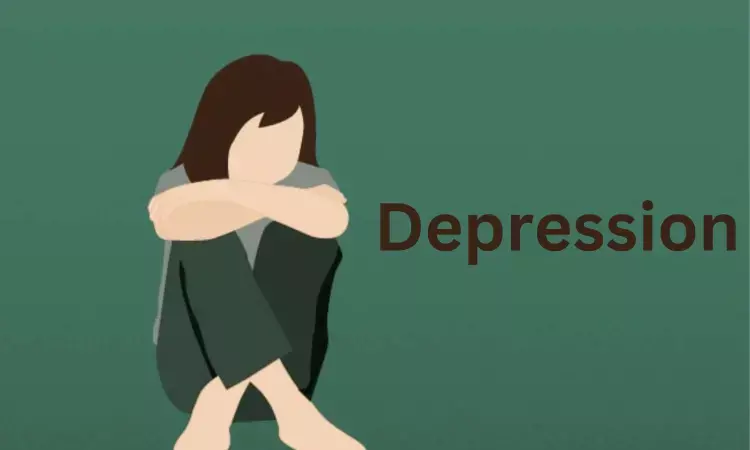- Home
- Medical news & Guidelines
- Anesthesiology
- Cardiology and CTVS
- Critical Care
- Dentistry
- Dermatology
- Diabetes and Endocrinology
- ENT
- Gastroenterology
- Medicine
- Nephrology
- Neurology
- Obstretics-Gynaecology
- Oncology
- Ophthalmology
- Orthopaedics
- Pediatrics-Neonatology
- Psychiatry
- Pulmonology
- Radiology
- Surgery
- Urology
- Laboratory Medicine
- Diet
- Nursing
- Paramedical
- Physiotherapy
- Health news
- Fact Check
- Bone Health Fact Check
- Brain Health Fact Check
- Cancer Related Fact Check
- Child Care Fact Check
- Dental and oral health fact check
- Diabetes and metabolic health fact check
- Diet and Nutrition Fact Check
- Eye and ENT Care Fact Check
- Fitness fact check
- Gut health fact check
- Heart health fact check
- Kidney health fact check
- Medical education fact check
- Men's health fact check
- Respiratory fact check
- Skin and hair care fact check
- Vaccine and Immunization fact check
- Women's health fact check
- AYUSH
- State News
- Andaman and Nicobar Islands
- Andhra Pradesh
- Arunachal Pradesh
- Assam
- Bihar
- Chandigarh
- Chattisgarh
- Dadra and Nagar Haveli
- Daman and Diu
- Delhi
- Goa
- Gujarat
- Haryana
- Himachal Pradesh
- Jammu & Kashmir
- Jharkhand
- Karnataka
- Kerala
- Ladakh
- Lakshadweep
- Madhya Pradesh
- Maharashtra
- Manipur
- Meghalaya
- Mizoram
- Nagaland
- Odisha
- Puducherry
- Punjab
- Rajasthan
- Sikkim
- Tamil Nadu
- Telangana
- Tripura
- Uttar Pradesh
- Uttrakhand
- West Bengal
- Medical Education
- Industry
Twice-Weekly Subcutaneous Ketamine Shows Promise in Treatment-Resistant Depression

A phase III study called KADS published in The British Journal of Psychiatry has demonstrated that twice-weekly subcutaneous ketamine can effectively alleviate symptoms of treatment-resistant depression. Led by Dr. Colleen Loo and her team from the University of New South Wales in Sydney, Australia, the trial compared the efficacy of ketamine with the benzodiazepine midazolam in inducing remission of depression in patients who had not responded to other treatments.
● Among participants who received at least one flexible treatment dose of ketamine (0.5-0.9 mg/kg), the remission rate was more than 12 times higher compared to those who received midazolam.
● The remission rate, defined as a Montgomery-Åsberg Rating Scale for Depression (MADRS) score of 10 or lower, was 19.6% in the ketamine group versus 2.0% in the midazolam group.
● The results also showed that the reduction in average MADRS score was significantly greater in the ketamine group, and the response rate based on a 50% improvement in MADRS score was much higher compared to the midazolam group.
Dr. Loo emphasized the importance of these findings, stating that a 20% remission rate is considered significant for individuals with treatment-resistant depression. The study provides definitive evidence for the effectiveness of ketamine, which was previously supported by smaller trials comparing ketamine with placebo.
However, in the fixed-dose cohort receiving only the lower 0.5 mg/kg dose, ketamine did not show significant superiority over midazolam in terms of remission rates. This suggests that the effectiveness of ketamine may be dose-dependent.
Both ketamine and midazolam were administered subcutaneously into the abdominal wall twice per week for 4 weeks. The study found that ketamine was generally well-tolerated, with most adverse events resolving quickly.
Ketamine has been widely studied for its potential as a treatment for depression, but it is currently not FDA approved for this indication. It is approved as an anaesthetic but is frequently used off-label for depression. The nasal spray form of ketamine, called esketamine, has been FDA approved as a treatment for treatment-resistant depression when used in conjunction with an oral antidepressant. However, access to esketamine has been limited due to various barriers, including insurance coverage.
Dr. Loo highlighted the cost-effectiveness of generic ketamine compared to esketamine. She noted that while a treatment with esketamine can cost around $1,200, including the drug and the procedure, a generic ketamine treatment costs approximately $300-350. These cost differences emphasize the need for more accessible and affordable options for patients.
The recent ELEKT-D trial also demonstrated the efficacy of intravenous ketamine compared to electroconvulsive therapy (ECT) in treatment-resistant depression. Ketamine not only
matched but outperformed ECT in terms of treatment response. These findings are significant as ECT is often considered the "gold standard" for treatment-resistant depression.
In conclusion, the KADS study provides further evidence for the effectiveness of subcutaneous ketamine in treating treatment-resistant depression. The results highlight the potential of ketamine as a powerful and rapid-acting treatment for individuals who have not responded to other therapies. Efforts to improve accessibility and affordability of ketamine treatments are necessary to provide more patients with access to this promising intervention.
Reference:
The British Journal of Psychiatry Loo C, et al "Efficacy and safety of a 4-week course of repeated subcutaneous ketamine injections for treatment-resistant depression (KADS study): Randomised double-blind active-controlled trial" Br J Clin Psychol 2023; DOI: 10.1192/bjp.2023.79.
Dr Kamal Kant Kohli-MBBS, DTCD- a chest specialist with more than 30 years of practice and a flair for writing clinical articles, Dr Kamal Kant Kohli joined Medical Dialogues as a Chief Editor of Medical News. Besides writing articles, as an editor, he proofreads and verifies all the medical content published on Medical Dialogues including those coming from journals, studies,medical conferences,guidelines etc. Email: drkohli@medicaldialogues.in. Contact no. 011-43720751


